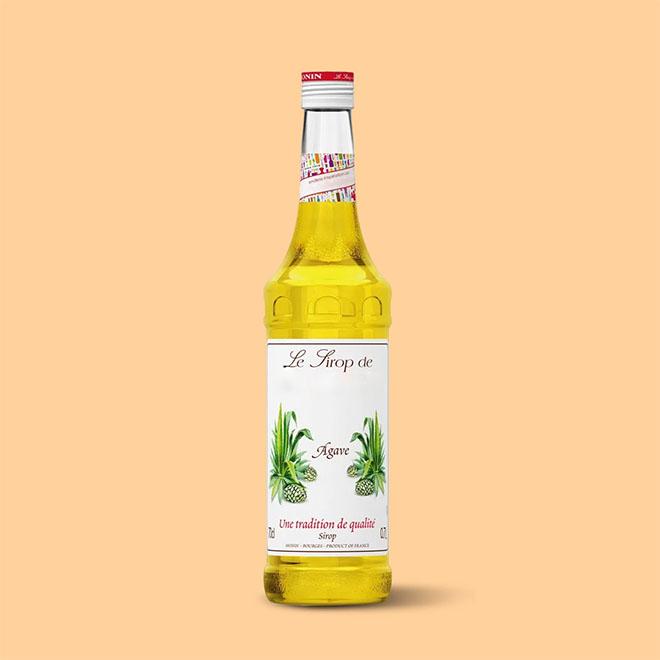Agave Syrup




Agave nectar or syrup is a sweetener that is derived from the sap of some species of agave plants, particularly the blue agave plant. It is a thick, syrupy liquid with a sweet flavor. Agave nectar and syrup are often used as substitutes for sugar in cooking and baking. They are also used in some processed foods and beverages.
Agave nectar has been used for centuries to make traditional Mexican foods and drinks such as pulque, a fermented beverage consumed in Mexico for over 2000 years.
When buying agave syrup/nectar, go for the light version if you’re planning on using it in baking and beverages. Choose amber agave nectar if making marinades and sauces. Go for the dark version for robust dishes like barbacoa or braises.
Agave nectar and syrup should be kept in a tightly sealed container in a dark and cool place. Once opened, they can last up to 6 months.
If they start going bad, you’ll notice a bad smell as well as a change in texture and color.
Both agave nectar and syrup can be used as substitutes for sugar in baking, with a ratio of 1:1.
Ditch the processed sugars and elevate your morning brew with a dash of agave. Its delicate sweetness complements your coffee without overpowering the rich aroma.
Agave nectar's humectant properties make it a surprising base for a homemade moisturizer. Combine it with coconut oil and your favorite essential oils for a luxurious body lotion or a nourishing hair mask.
Agave nectar is a low-glycemic index food, which means that it does not cause a spike in blood sugar levels after eating. However, it is important to note that agave nectar is high in calories and fructose. Fructose is a type of sugar that can be harmful to the liver if consumed in excess.
Agave nectar and agave syrup are two similar products, but there are some key differences between them.
Agave nectar is the pure, unprocessed juice of the agave plant. It is extracted from the plant and then filtered to remove impurities. Agave nectar has a light, sweet flavor and a slightly syrupy consistency.
Agave syrup is a processed form of agave nectar. It is made by heating agave nectar to a high temperature, which causes the sugars to caramelize. This gives agave syrup a darker color and a richer flavor than agave nectar.
Agave nectar and syrup can crystallize when heated to high temperatures. If you are using agave nectar or syrup in baking, be sure to cook your food or drink over low heat to prevent crystallization.
When using agave nectar or syrup in baking, be sure to reduce the amount of liquid in your recipe by 1/4 to 1/3 cup. Agave nectar and syrup are more liquid than sugar, so you need to adjust the amount of liquid in your recipe accordingly.
While agave syrup has gained popularity as a natural sweetener, its health benefits are much debated and often misconstrued.
Agave syrup has a lower glycemic index (GI) than sugar, meaning it causes a smaller and slower rise in blood sugar levels. However, some studies question the accuracy of these claims, so further research is needed.
Agave syrup is derived from the agave plant, a natural source, unlike high fructose corn syrup which is a processed sweetener. However, remember that natural doesn't always equate to healthy. Agave syrup is primarily composed of fructose, a type of sugar linked to various health problems like obesity, heart disease, and fatty liver disease. Consuming high amounts of fructose can potentially negate any potential benefits of a lower GI.
Corrections or improvements? Email us at
content@sidechef.com